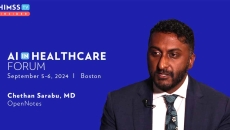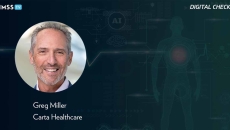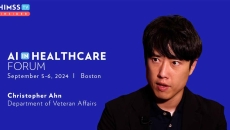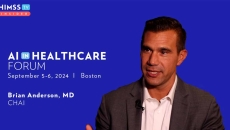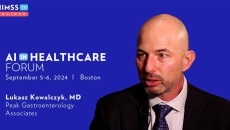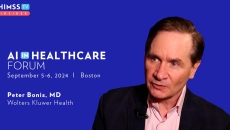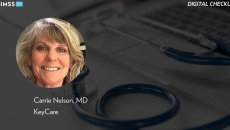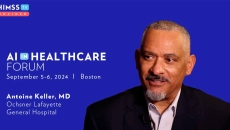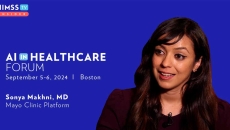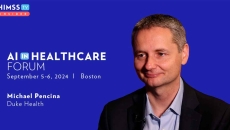HIMSS TV
ChatGPT and other large language models enable a new level of patient empowerment in their care, such as navigating questions about their diagnosis, insurance benefits and cost, says Dr. Chethan Sarabu, AI & informatics strategist at OpenNotes.
CIOs and other IT leaders this year are expected to explore practical applications for AI, such as use in administrative functions, for which AI is ideally suited, says Greg Miller, vice president of business development at Carta Healthcare.
Christopher Ahn, biomedical engineer supervisor at the U.S. Department of Veteran Affairs in Dayton, Ohio, developed a chatbot called the Healthcare Technology Large language Model that allows clinicians to query the chatbot rather than carrying around service manuals or scrolling through a pdf, Ahn says.
CHAI has formed five working groups for best practices to build out an assurance standards guide. Later this fall it will announce a model card to align health systems, payers and IT companies, says Dr. Brian Anderson, cofounder and CEO.
The question becomes not whether AI can predict disease, but what physicians should tell patients, ethically, such as their chances of getting cancer, says Dr. Lukasz Kowalczyk, a physician at Colorado-based Peak Gastroenterology Associates.
From an enterprise level there is no shortage of AI opportunities around the economic value of the application, says Dr. Peter Bonis, chief medical officer at Wolters Kluwer Health.
Telemedicine offsets waiting times and offers the ability for a clinician to step in after hours, says Carrie Nelson, chief medical officer at KeyCare.
There's a hesitancy to trust generative AI, but, at the same time, clinicians don't want to miss a diagnosis, says Dr. Antoine Keller, cardiothoracic surgeon at Ochsner Lafayette Hospital.
Because there are barriers to adoption and trust, solutions need to be useful, be transparent around information that goes into performance and be safe, fair and cybersecure, says Dr. Sonya Makhni, medical director of applied informatics at Mayo Clinic Platform.
Deploying AI needs a strategy for use cases that starts with identifying problems that need to be solved, says Michael Pencina, director of Duke AI Health.
